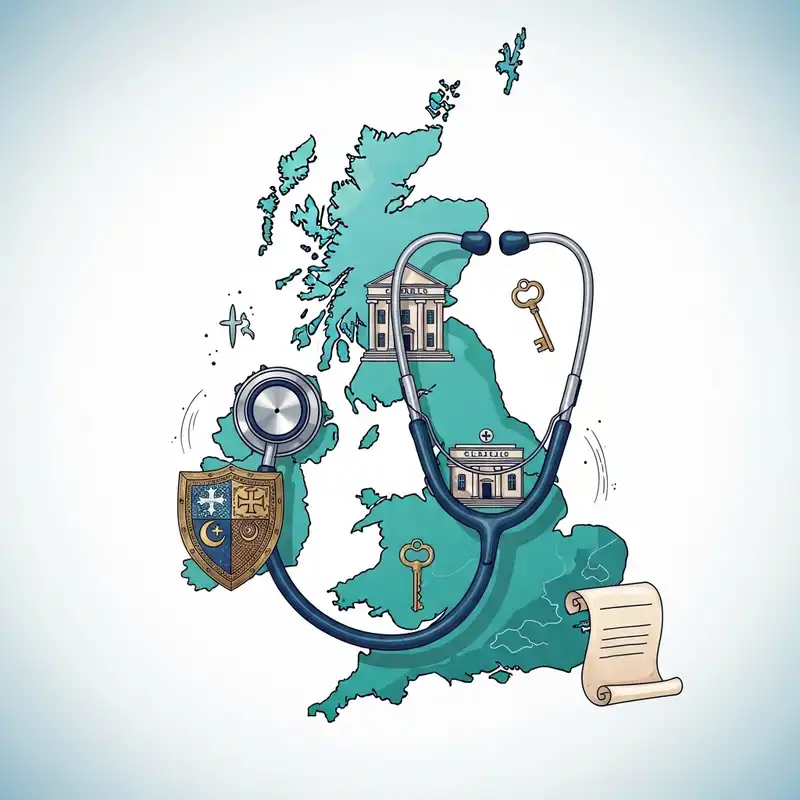TL;DR
Choosing a life insurance policy is one of the most significant financial decisions you'll ever make. It’s a promise to your loved ones – a commitment to provide for them even if you’re no longer there. In the bustling UK insurance market, two names consistently stand out as titans of the industry: Aviva and Legal & General.
Key takeaways
- Aviva is a household name and the UK's largest insurer, known for its all-around excellence, superb claims record, and a fantastic package of added-value health and wellbeing services. Following its acquisition of Aviva Protection (formerly AIG Life), its proposition is stronger than ever.
- Legal & General is the household name, the UK’s largest provider of individual life insurance, known for its competitive pricing, straightforward products, and immense financial strength.
- Level Term: The payout amount remains the same throughout the term. Ideal for covering an interest-only mortgage or providing a general family safety net. Both Aviva (formerly AIG Life) and L&G offer strong, straightforward level term policies.
- Level Term: The payout amount remains the same throughout the term. Ideal for covering an interest-only mortgage or providing a general family safety net. Both Aviva and L&G offer strong, straightforward level term policies.
- Decreasing Term: The payout amount reduces over time, typically in line with a repayment mortgage. Legal & General is famously competitive in this space and is often a go-to choice for first-time homebuyers looking to protect their mortgage debt cheaply and effectively. Aviva's former AIG Life offering is also robust, but L&G's sheer scale often gives them the edge on price for standard applicants.
Choosing a life insurance policy is one of the most significant financial decisions you'll ever make. It’s a promise to your loved ones – a commitment to provide for them even if you’re no longer there. In the bustling UK insurance market, two names consistently stand out as titans of the industry: Aviva and Legal & General. Both are giants, trusted by millions, yet they offer distinctly different approaches to protection.
So, how do you choose between them? Which one offers the truly comprehensive cover that will give you and your family complete peace of mind in 2026?
This is where we come in. As expert protection specialists, we at WeCovr spend our days navigating the intricate details of policies from all the UK’s leading insurers. We’ve done the deep dive, scrutinised the small print, and compared the benefits so you don’t have to. This guide is our expert, head-to-head comparison of Aviva (formerly AIG Life) and Legal & General, designed to help you understand which titan of the industry is the right fit for your unique circumstances.
WeCovr’s expert comparison of two of the UK's leading life insurers
When comparing Aviva and Legal & General, it’s not about finding a single "winner." The best insurer for a 30-year-old self-employed plumber seeking income protection might be completely different from the best choice for a 55-year-old company director planning for inheritance tax.
The real question is: which provider’s philosophy, product features, and definition of "comprehensive" aligns best with your life, your health, and your priorities?
- Aviva is a household name and the UK's largest insurer, known for its all-around excellence, superb claims record, and a fantastic package of added-value health and wellbeing services. Following its acquisition of Aviva Protection (formerly AIG Life), its proposition is stronger than ever.
- Legal & General is the household name, the UK’s largest provider of individual life insurance, known for its competitive pricing, straightforward products, and immense financial strength.
In this guide, we'll dissect their offerings across life insurance, critical illness cover, income protection, and more. We'll look beyond the headline prices and explore what truly constitutes comprehensive protection in 2026.
Aviva and Legal & General at a Glance: A Tale of Two Giants
To understand their products, it helps to understand the companies themselves. They come from different backgrounds, which shapes their approach to the market.
Aviva is a global insurance behemoth with a history stretching back over 300 years. As the UK's largest insurer, they have a significant and respected presence. Their 2024 acquisition of Aviva Protection (formerly AIG Life) UK further bolstered their market position, integrating Aviva's former AIG Life reputation for innovation and flexible underwriting into their already comprehensive offering.
Legal & General, founded in London in 1836, is a cornerstone of the British financial landscape. As a FTSE 100 company, it manages over £1.2 trillion in assets (as of their 2023 reports). They are the dominant force in the UK protection market, responsible for protecting millions of families. Their scale allows them to offer highly competitive pricing, particularly for standard-risk applicants. (illustrative estimate)
Here's a quick side-by-side look:
| Feature | Aviva | Legal & General |
|---|---|---|
| Founded | 1696 (as Hand in Hand Fire) | 1836 (UK) |
| UK Market Position | UK's Largest Insurer | UK's Largest Life Insurer |
| Primary Focus | All-round excellence, added benefits | Accessible, reliable, volume |
| FTSE 100 Member | Yes | Yes |
| Reputation For | Comprehensive cover, digital health | Competitive pricing, market leader |
| 2023 Life Claims Paid | 99.4% | 96.7% |
| 2023 CI Claims Paid | 92.5% | 93.3% |
Statistics based on 2024 published claims data for the 2023 calendar year.
These figures show that both insurers are exceptionally reliable when it comes to paying claims. The slight variations often come down to the mix of products and the nature of claims received. The key takeaway is that both have an outstanding track record.
Core Protection Products: What's on Offer?
Let's break down the main types of protection and see how the two insurers stack up.
Life Insurance
This is the foundation of financial protection. It pays out a lump sum or a regular income if you pass away during the policy term.
1. Term Life Insurance: This is the most common type, covering you for a fixed period (the "term").
- Level Term: The payout amount remains the same throughout the term. Ideal for covering an interest-only mortgage or providing a general family safety net. Both Aviva (formerly AIG Life) and L&G offer strong, straightforward level term policies.
- Level Term: The payout amount remains the same throughout the term. Ideal for covering an interest-only mortgage or providing a general family safety net. Both Aviva and L&G offer strong, straightforward level term policies.
- Decreasing Term: The payout amount reduces over time, typically in line with a repayment mortgage. Legal & General is famously competitive in this space and is often a go-to choice for first-time homebuyers looking to protect their mortgage debt cheaply and effectively. Aviva's former AIG Life offering is also robust, but L&G's sheer scale often gives them the edge on price for standard applicants.
- Decreasing Term: The payout amount reduces over time, typically in line with a repayment mortgage. Legal & General is famously competitive in this space and is often a go-to choice for first-time homebuyers looking to protect their mortgage debt cheaply and effectively. Aviva's offering is also robust, but L&G's sheer scale often gives them the edge on price for standard applicants.
- Family Income Benefit: Instead of a lump sum, this pays out a regular, tax-free monthly or annual income to your family until the end of the policy term. It’s an excellent, often more manageable way to replace a lost salary. Both providers offer this, and the choice often depends on the specific income level and term required.
2. Whole of Life Insurance: This policy has no end date; it's guaranteed to pay out whenever you die. It's more expensive but is often used for two specific purposes:
- Covering funeral costs.
- Inheritance Tax (IHT) planning. For clients who have made substantial gifts and want to cover the potential IHT liability if they die within 7 years, a Gift Inter Vivos policy is essential. Both Aviva (formerly AIG Life) and L&G offer solutions in this space, often placing the policy in trust to ensure the payout goes directly to beneficiaries without forming part of the estate. Aviva's former AIG Life experience with high-net-worth clients can be particularly valuable here.
- Inheritance Tax (IHT) planning. For clients who have made substantial gifts and want to cover the potential IHT liability if they die within 7 years, a Gift Inter Vivos policy is essential. Both Aviva and L&G offer solutions in this space, often placing the policy in trust to ensure the payout goes directly to beneficiaries without forming part of the estate. Aviva's experience with high-net-worth clients can be particularly valuable here.
Critical Illness Cover (CIC)
This is where the term "comprehensive" really comes into play. CIC pays out a lump sum if you are diagnosed with one of a list of specific serious illnesses. A modern policy from either Aviva or L&G will cover many conditions, but the definitions matter immensely.
| Feature | Aviva (Critical Illness Plan) | Legal & General (Critical Illness Extra) |
|---|---|---|
| Full Conditions | 50+ (core list) | 50+ (core list) |
| Partial Payments | Extensive list of additional conditions | 20+ additional conditions |
| Core Focus | All-round comprehensive cover | Simplicity and covering the "big three" well |
| Cancer Definition | Very comprehensive, including less advanced cancers | Strong, meets ABI+ standards |
| Heart Attack Definition | Strong ABI+ definition | Standard ABI+ definition |
| Children's Cover | Up to £100k or 50% of sum assured. | Up to £35k or 50% of sum assured. Covers specific conditions |
The WeCovr Verdict on CIC:
- Aviva offers a market-leading proposition, partly thanks to its integration of Aviva Protection (formerly AIG Life)'s strengths. Their definitions for conditions like heart attack and cancer are very comprehensive, and their extensive list of partial payment conditions (paying a smaller percentage of the cover for less severe illnesses) is a major strength.
- Legal & General provides incredibly solid, reliable CIC. Their "Extra" cover is robust, meets ABI+ (Association of British Insurers) standards, and focuses on covering the most common reasons for claims exceptionally well. For many people, this is more than sufficient and comes at a very competitive price.
The choice here is crucial. If your priority is having the widest possible net for every eventuality, Aviva is a formidable contender. If you want excellent, affordable cover for the most likely events from a trusted brand, Legal & General is a fantastic option.
Income Protection (IP)
Often called the "bedrock" of any financial plan, Income Protection pays you a regular monthly income if you can't work due to illness or injury. It's arguably more important than life insurance for most working adults, as you're far more likely to be off work long-term than to die prematurely.
| Feature | Aviva | Legal & General |
|---|---|---|
| Definition of Incapacity | Own Occupation (standard) | Own Occupation (standard) |
| Payment Period | Full term to retirement | Full term to retirement |
| Deferment Periods | 4, 8, 13, 26, 52 weeks | 4, 8, 13, 26, 52 weeks |
| Specialist Products | Strong for high-risk jobs, medical professionals (Aviva (formerly AIG Life) legacy) | Standard product, competitive for office-based roles |
| Executive IP | Yes, a key offering | Yes, a strong offering |
The most critical factor in any IP policy is the definition of incapacity. Both Aviva and Legal & General offer the gold standard 'Own Occupation' definition as standard. This means the policy will pay out if you are unable to do your specific job, not just any job.
Where's the difference? Aviva, having integrated Aviva Protection (formerly AIG Life), has a strong reputation for its flexible underwriting for those in riskier jobs, such as tradespeople or medical professionals. They also offer specific products like shorter-term IP policies designed for those who might not need cover all the way to retirement but want protection for 1, 2, or 5 years.
For the Self-Employed and Company Directors: Income Protection is non-negotiable.
- Freelancers & Self-Employed: A standard IP policy provides a direct replacement for your lost earnings, allowing you to keep your business afloat and pay your personal bills.
- Company Directors: You have a powerful alternative: Executive Income Protection. This is a business expense, paid for by your company, making it highly tax-efficient. It pays a benefit to the company, which then pays it to you via PAYE. Both Aviva (formerly AIG Life) and Legal & General offer excellent Executive IP plans, and this is a conversation we at WeCovr regularly have with our business-owning clients.
- Company Directors: You have a powerful alternative: Executive Income Protection. This is a business expense, paid for by your company, making it highly tax-efficient. It pays a benefit to the company, which then pays it to you via PAYE. Both Aviva and Legal & General offer excellent Executive IP plans, and this is a conversation we at WeCovr regularly have with our business-owning clients.
Business Protection
For business owners, protection isn't just personal; it's about continuity.
- Key Person Insurance: If a key employee (including yourself) becomes critically ill or dies, this policy pays a lump sum to the business to cover lost profits, recruitment costs, or loan repayments.
- Relevant Life Cover: This is a tax-efficient 'death-in-service' benefit for individual employees/directors, paid for by the business. Premiums are typically an allowable business expense, and benefits are paid tax-free to the family via a trust.
Both Aviva and Legal & General are major players in the business protection market. Aviva's expertise with high-net-worth individuals and complex financial arrangements often makes them a preferred choice for larger or more intricate business structures. Legal & General's straightforward processes and brand recognition make them a popular choice for SMEs seeking reliable, cost-effective cover.
The Devil is in the Detail: Key Policy Features Compared
Beyond the core products, the small print defines how "comprehensive" a policy truly is.
- Guaranteed Insurability Options (GIOs): This is a vital feature. It allows you to increase your cover without any further medical questions after certain life events (e.g., marriage, birth of a child, mortgage increase). Both providers offer excellent GIOs, but the limits and specific events covered can differ slightly. Aviva (formerly AIG Life) often has slightly more generous increase limits.
- Guaranteed Insurability Options (GIOs): This is a vital feature. It allows you to increase your cover without any further medical questions after certain life events (e.g., marriage, birth of a child, mortgage increase). Both providers offer excellent GIOs, but the limits and specific events covered can differ slightly. Aviva often has slightly more generous increase limits.
- Waiver of Premium: This add-on covers your insurance premiums if you're unable to work due to illness or injury (after a set deferment period). It's a crucial feature for IP and CIC policies. Both offer it, and it's almost always worth the small extra cost.
- Increasing Cover (Indexation): To protect your payout from being eroded by inflation over time, you can opt for your cover to increase each year, usually in line with the Retail Prices Index (RPI). Your premiums will also rise. Both insurers offer this as a standard option.
Added Value Benefits: More Than Just a Payout
This is the modern battleground where insurers truly differentiate themselves. The best policies today don't just wait for you to get sick; they actively help you and your family stay healthy.
This is where Aviva's DigiCare+ and the legacy Aviva Smart Health service (for former Aviva (formerly AIG Life) customers) are genuine game-changers.
Aviva's DigiCare+ App: Available to new Aviva policyholders and their immediate families from day one, at no extra cost. It includes:
- 24/7 UK-based GP: Unlimited access to video or phone consultations. This can be invaluable for getting quick advice, prescriptions, or referrals.
- Second Medical Opinion: If you or a family member is diagnosed with a serious condition, a world-leading expert will review your case and provide a detailed second opinion. This provides incredible peace of mind.
- Mental Health Support: Access to therapy sessions to help with issues like stress, anxiety, and bereavement.
- Nutrition Support: Consultations with nutritionists to help you improve your diet.
- Health Check: A yearly online questionnaire that provides a detailed health report.
Legal & General's Wellbeing Support: Legal & General also provide a strong package of support services, often in partnership with specialist third parties like RedArc.
- Wellbeing Support: Access to nurses who can provide long-term practical advice and emotional support following a diagnosis, bereavement, or serious injury.
- Second Medical Opinion: They also offer a second opinion service for peace of mind on a diagnosis or treatment plan.
- Mental Health Support: Access to counselling and therapy services.
- Carer Support: Practical help and emotional support for those who find themselves in a caring role.
How We See It at WeCovr: Both packages are excellent and add huge value beyond the core insurance promise. Aviva's DigiCare+ is arguably more integrated and accessible for day-to-day health concerns (like the 24/7 GP), making it feel like a private health benefit wrapped into your protection policy. Legal & General's support is more focused on helping you through the major life events that would lead to a claim.
We believe so strongly in this holistic approach to health that we provide our own clients with complimentary access to CalorieHero, our AI-powered calorie and nutrition tracking app. It's our way of showing we're invested in your long-term wellbeing, not just your insurance policy.
Underwriting Philosophy and Claims Performance
Underwriting is the process an insurer uses to assess your application and decide the terms of your cover. This is where the differences between Aviva (formerly AIG Life) and L&G can be most stark.
- Legal & General's underwriting is a model of efficiency. For healthy applicants with standard occupations, their online system is fast, smooth, and can often provide an instant decision. They are built for scale.
- Aviva's underwriting, particularly with the integration of Aviva's former AIG Life expertise, is known for its flexibility and nuance. They are often more willing to take a detailed, individual look at applicants with:
- Complex medical histories (e.g., well-managed diabetes, previous cancer).
- Hazardous occupations or hobbies.
- Significant foreign travel or residency.
- A need for very high levels of cover.
For an expert broker like us, this is critical. If a client has a straightforward profile, L&G might offer the best price. If a client has been declined or offered poor terms elsewhere, Aviva is often one of the first places we turn to, as their underwriters are empowered to make individual assessments.
Claims Performance - The Moment of Truth
As the table earlier showed, both companies are exemplary when it comes to paying claims.
- Aviva paid 99.4% of life claims in 2023.
- Legal & General paid 96.7% of life claims in 2023.
The small percentage of claims that aren't paid are almost always due to non-disclosure – where the applicant wasn't truthful about their medical history or lifestyle on the application form. This is why it is absolutely vital to be completely honest when you apply. Working with a broker like WeCovr can help ensure your application is accurate and complete, giving you the best possible chance of a successful claim.
Who is Aviva Best For?
Based on our extensive experience, Aviva often represents the most comprehensive choice for:
- Individuals with pre-existing or complex health conditions who need an insurer willing to look at their case individually.
- Those who place a high value on integrated health services. If having a 24/7 GP and mental health support on tap is important to you, Aviva's DigiCare+ is hard to beat.
- High-net-worth individuals and company directors who require large sums assured and sophisticated products like Executive Income Protection or Key Person cover.
- People seeking the most detailed Critical Illness Cover, with broader definitions and an extensive list of partial payments.
- Those in higher-risk occupations (e.g., trades, medical fields) who may find Aviva's underwriting more favourable.
Who is Legal & General Best For?
Legal & General remains a fantastic and often unbeatable choice for:
- First-time buyers and families looking for simple, affordable, and reliable mortgage protection (decreasing term) or level term insurance.
- Applicants in good health and standard occupations who can benefit from L&G's streamlined application process and highly competitive pricing.
- Anyone who prioritises brand trust and financial strength. As a FTSE 100 company and the UK's market leader, their name carries enormous weight.
- Individuals who want a solid, no-fuss Critical Illness policy that covers the main risks exceptionally well without necessarily needing the niche definitions offered by specialists.
How WeCovr Helps You Choose
Reading this guide, you might be leaning one way or the other. But the truth is, you can't know for sure which is best without a personalised quote that takes your unique health, lifestyle, and financial situation into account.
That’s our job.
As an independent, whole-of-market broker, we aren't tied to Aviva (formerly AIG Life), Legal & General, or any single insurer. Our only loyalty is to you, our client.
- We Listen: We start by understanding what you want to protect – your family, your mortgage, your income, your business.
- We Research: We use our expertise and sophisticated software to compare policies from all the UK's leading insurers, not just these two. We look at price, features, definitions, and underwriting stances.
- We Advise: We present you with the best options for your specific needs and budget, explaining the pros and cons of each in plain English. We’ll tell you if L&G’s price is unbeatable for your term policy, or if Aviva (formerly AIG Life)’s superior CIC definition is worth the extra few pounds a month.
- We Support: We handle the application process for you, ensuring it’s completed accurately. And we’re here for you for the life of the policy, ready to help if you ever need to make a claim.
Our advice is free, impartial, and comes with no obligation.
Conclusion: The Final Verdict
So, who offers more comprehensive cover: Aviva or Legal & General?
The answer is: it depends entirely on what "comprehensive" means to you.
-
If comprehensive means maximum flexibility, the widest possible medical definitions, and a suite of built-in private health services, then Aviva often has the edge. They have built a proposition designed for depth and detail.
-
If comprehensive means utterly reliable, straightforward protection from a trusted UK giant at a highly competitive price, then Legal & General is an outstanding choice. They deliver exactly what millions of UK families need, and they do it exceptionally well.
Neither is universally "better" than the other. They are two different, excellent solutions for two different sets of priorities. The biggest mistake you can make is choosing based on price alone or trying to navigate the complexities of their policies without expert guidance.
Your family’s financial security is too important to leave to chance. Let us help you make the right choice.
Is Aviva or Legal & General cheaper for life insurance?
Which insurer is better for critical illness cover?
Do I have to take a medical exam for Aviva or Legal & General?
Can I have policies with both Aviva and Legal & General?
How do their children's critical illness covers compare?
What are the main advantages of Aviva's DigiCare+ service?
Sources
- Office for National Statistics (ONS): Mortality, earnings, and household statistics.
- Financial Conduct Authority (FCA): Insurance and consumer protection guidance.
- Association of British Insurers (ABI): Life insurance and protection market publications.
- HMRC: Tax treatment guidance for relevant protection and benefits products.































